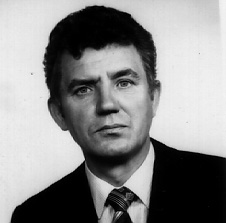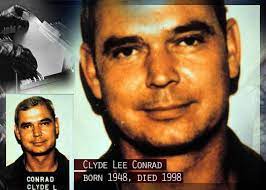The Hungarian CIA agent who exposed the biggest espionage operation against NATO
Lt. Col. István Belovai was initially employed by the Hungarian Strategic Military Intelligence Service in the ’70s-80s, however, he soon decided to change sides and began serving the Americans as a double agent. Known also as The Rat among his colleagues, the most famous Hungarian CIA agent caused incomprehensible damage to the Hungarian Intelligence Service. Belovai never admitted the charges, moreover, in his autobiography he considered himself to have played an important role in preventing the breakout of the Third World War and exposing the biggest espionage operation ever perpetrated against NATO.
Belovai first saw the light of day in a tiny sleepy village in Hungary’s Southern Great Plain region in 1938. Little did his father knew, who worked as a simple rope manufacturer, that his son would become the most notorious double agent in the country and reach even the shores of the New Land. After elementary school, he spent a couple of years helping out on their family’s farm before he was called in for military service. Due to his outstanding performance, he was referred by his commander to join a two-year officer-candidate programme which he completed with flying colours. He was a natural at learning languages and already mastered English and Italian before graduating from the Zrínyi Miklós Military Academy in 1973. Following that year, his career was shooting straight up, like a rocket ship.
According to Belovai’s memoir, the idea of joining the CIA already started forming in his head in the late seventies, however, he had to wait a few years to go through with his plan. It all began when in the summer of 1975, top secret NATO material started flowing to his desk from West Germany, which included NATO battle plans, detailed descriptions of nuclear weapon locations and movements of troops, aircraft and tanks. Belovai’s decision to join the opposition forces was prompted by his realisation that this immense amount of confidential documents the Hungarian Intelligence came to access was all bound to be passed on to the Soviets. Through the pages of his autobiography, he expressed his fear of a possible outbreak of a Third World War.
Read more: The Hungarian-American priest who turned into an FBI agent
In an interview with The Christian Science Monitor, the late double agent further explained his motives,
“The Soviets had the vital information needed, and were preparing for a successful attack against the West. The result would have been capitulation or a nuclear response. I wanted to prevent this”.
Belovai first got in contact with the CIA in 1982 while working in London as a military attaché and intelligence officer at the Hungarian Embassy. The Hungarian agent said that he had Hungary’s interest in mind the whole time when he decided to inform the Americans about the activities of the infamous Conrad spy ring, one of the most damaging espionage operations ever against NATO. They hand-delivered more than 30,000 top-secret materials to the communist governments of Hungary and Chechoslovakia, which then directly made their way to Moscow and the Soviet KGB. Belovai was first in line to translate and evaluate the documents that identified and exposed the perpetrators.
However, he could not celebrate his success as he was arrested by counterintelligence in 1985 while picking up a CIA container at Keleti Railway Station during one of his visits to Hungary. It turned out that Hungarian Intelligence already opened an investigation against him on the suspicion of state treachery, the year before. Apart from uncovering the Conrad case, Belovai also reported to the CIA on his colleagues working as official or covert agents at the London-based Military Intelligence Station. Besides, he also willingly handed over all the names of the Hungarian Intelligence and other top confidential information regarding the state’s internal affairs to the Central Intelligence Agency.
Despite his heroic act of exposing the biggest spy operation threatening NATO, back in his country, the colonel was deemed a traitor and a common criminal by Hungarian authorities. The military court sentenced him to life imprisonment for high treason and the most serious act of espionage ever perpetrated against the Hungarian state. Surprisingly, he was released by former liberal Hungarian President Árpád Göncz in 1990. Upon his departure from prison, he got hold of information that the Hungarian Interior Ministry initially argued for a death sentence at his trial. Concerned for his safety, he fled to the States and settled down in Denver, Colorado where he spent the rest of his years until his death in 2009. Even though the US government granted him a colonel pension, he was never pardoned by the Hungarian state. Until his last days, Belovai refused the accusations of betraying his own native land.
“I was never a traitor. I was Hungary’s first NATO soldier,”
said the late colonel in a ’98 interview. After the end of the communist regime, Hungary rethought its foreign policy and began contemplating the idea of joining NATO. The country’s journey to becoming a fully integrated member was long and complicated though given the fact that it took nearly 10 years. Hungary officially became a NATO member on 12 March 1999.
Read more: Russian spy among the guest lecturers of a Budapest elite college?
Source: csmonitor.com, origo.hu, army.mil
please make a donation here
Hot news
Drama: number of births in a 20-year low in Hungary
Yay or nay? – 6 odd Hungarian delicacies that make our skin crawl
Budapest tourism “exploded” this past weekend
Container transport in Budapest may stop: How will this affect Hungarian economy?
Minister: Hungary will protect its territory by every means possible
Orbán cabinet may double airspace fee: another ticket price increase?






